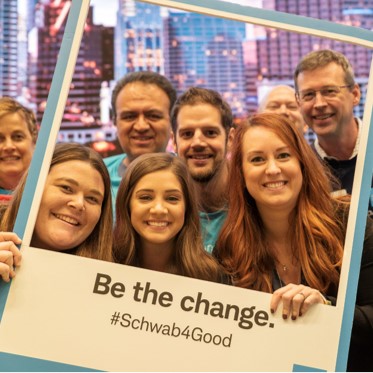A closer look at how skilled volunteerism can build sustainable capacity for the social sector

Many of the companies we work with at Common Impact host a Day of Service as a way to give back to their local communities. According to the most recent CECP Giving In Numbers, days of service are one of the most popular corporate volunteer programs with more than 77% of US companies offering this type of opportunity to employees. Currently, most days of service engage teams in volunteer projects like building a home, cleaning a local park or packing groceries at a food bank. And while these programs often deliver incredible value for the nonprofits, clients and the communities they serve, a traditional day of service doesn’t typically address on a different type of nonprofit need: capacity support.
That’s where a day of skilled service can help. Skills-based volunteerism focuses on building infrastructure for nonprofits that often operate with reduced resources and budgets. At Common Impact, we estimate that nonprofits spend just 2% of their overall budget on core business functions, compared to an average of 35% in the corporate sector. Additionally, more and more nonprofits – over an estimated 77% – are challenged to keep pace with growing demand for programs and service, according to the Salesforce Nonprofit Trends Report 2018.
As a complement to hands-on volunteer service, many organizations are now expanding their community and employee engagement programs to include skills-based volunteerism. Also known as pro bono service, skills-based volunteerism is one of the fastest growing trends with more than 50% of companies offering skilled volunteer opportunities. Whether crafting a custom marketing plan or developing HR processes, skills-based volunteerism is an effective way to ignite employees’ passion and engage their expertise by providing the opportunity to flex their professional skills and give back to their community in a meaningful way.
Common Impact’s partner Charles Schwab has long known the benefits of skilled volunteerism and offers an annual opportunity through their Pro Bono Challenge. Now in its fifth year, the Pro Bono Challenge is a skills-based flash consulting event that enables Schwab employees to apply their business expertise to building capacity for nonprofits in communities throughout the United States. In 2018, the challenge engaged nearly 400 volunteers and close to 70 nonprofits in nine different locations to deliver an estimated $500,000 in value.
We recently analyzed three years of data from the Charles Schwab Pro Bono Challenge and are excited to share the results of this program for the nonprofits, employees and the communities it supports. Our new paper – Making Long-Term Impact through a Day of Service – shares data, case studies and lessons learned from our work with the Charles Schwab Pro Bono Challenge and is available to help organizations find new ways to engage volunteers in shorter-term skilled engagements that provide measurable longer-term results.


